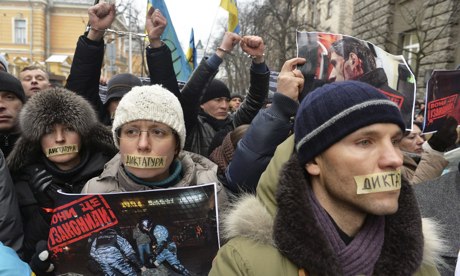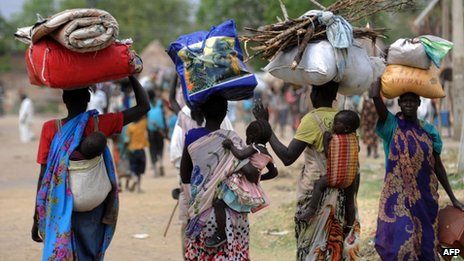By Brian Lanciault
Impunity Watch Reporter, Asia
BEIJING, China– Approximately seven Chinese activists who advocated for greater rule of law, fairer access to education and other issues are being put on trial this week as the government once again reinvigorates its campaign to stomp out dissent.
The premiere case is scheduled for Wednesday morning in Beijing as lawyer Xu Zhiyong, founder of the loose-knit New Citizens Movement, goes to court on charges of gathering a crowd to disrupt public order.
Xu is the highest-profile activist to be tried since Liu Xiaobo was sentenced to 11 years in prison on subversion charges in 2009. Xu won the Nobel Peace Prize in 2010. Expectations had risen since then that new President Xi Jinping might be more open to free speech, but those hopes have largely subsided, and a media blackout on Xu’s case has left most mainland Chinese ignorant of the proceedings.
Prosecutors allege that Xu and others incited hundreds of people to gather in front of government buildings, train stations, and universities in Beijing in 2012 and 2013. The demonstrators, according to the government, unfurled banners and handed out leaflets regarding education reform and asset disclosure for government officials. The charges carry a maximum penalty of five years in prison.
But it is the wider spectrum of Xu’s activities that have probably alarmed authorities, at least according to analysts and Xu’s close allies. Although Xu has been more cautious in his public statements than Liu, he has encouraged events such as dinner gatherings at so-called “dissident” discourse is permitted.
Feng Chongyi, an associate professor at the University of Technology in Sydney, who studies Chinese political movements, suggested that “They have been talking about a new sort of activism, the need to take new action, not only talk. The security people have made the judgment that they could be facing serious demonstrations. This is a preemptive strike…. They want to take out the leaders and organizers, and send a clear signal that no one is allowed to organize street protests.”
Xu’s rose to prominence in 2003 when he became involved in an unexpectedly successful campaign to abolish rules regarding police detentions of people found without urban residency permits. His Open Constitution Initiative law firm took on several dicey cases, defending the editor of a hard-hitting newspaper and representing parents whose children had been sickened or killed by milk additives. In 2009, the firm was hit with tax evasion charges.
Xu then founded the New Citizens Movement, which he said is aimed at treading “a new path for the Chinese nation, a path toward liberty, justice and love.”
Xu was placed under house arrest in April, detained in July and formally arrested in August. His lawyer, Zhang Qingfang, said he visited Xu on Tuesday morning and that he seemed calm ahead of the trial.
Zhang said he and Xu planned to remain silent throughout the hearing as a means of objecting to what they deem to be an irregular and unfair procedure imposed by authorities. Xu plans to provide a brief concluding statement.
A major concern, according to Zhang, was prosecutors’ decision to hold separate trials for the activists. Prosecutors have also refused to allow witnesses to appear in court and be questioned. Prosecutors had listed 68 witnesses against Xu, Zhang said, but would permit only their statements to be entered into the official record. Zhang’s efforts to bring five defense witnesses to the courtroom were rejected.
“This whole trial is being conducted in a black box, where we cannot actually see the entire process,” he said. “I always hope and strive to represent my clients in a fair trial, but this is not fair, so I will keep silent.”
For more information, please see:
New York Times–In China, a Week Full of Trials over Dissent–21 January 2014
Global Times–Xu Zhiyong set for Wed. Trial–21 January 2014
Voice of America–Prominent Rights Activist Faces Trial in China–21 January 2014
Los Angeles Times–Activists on trial as China steps up campaign against dissent–21 January 2014



